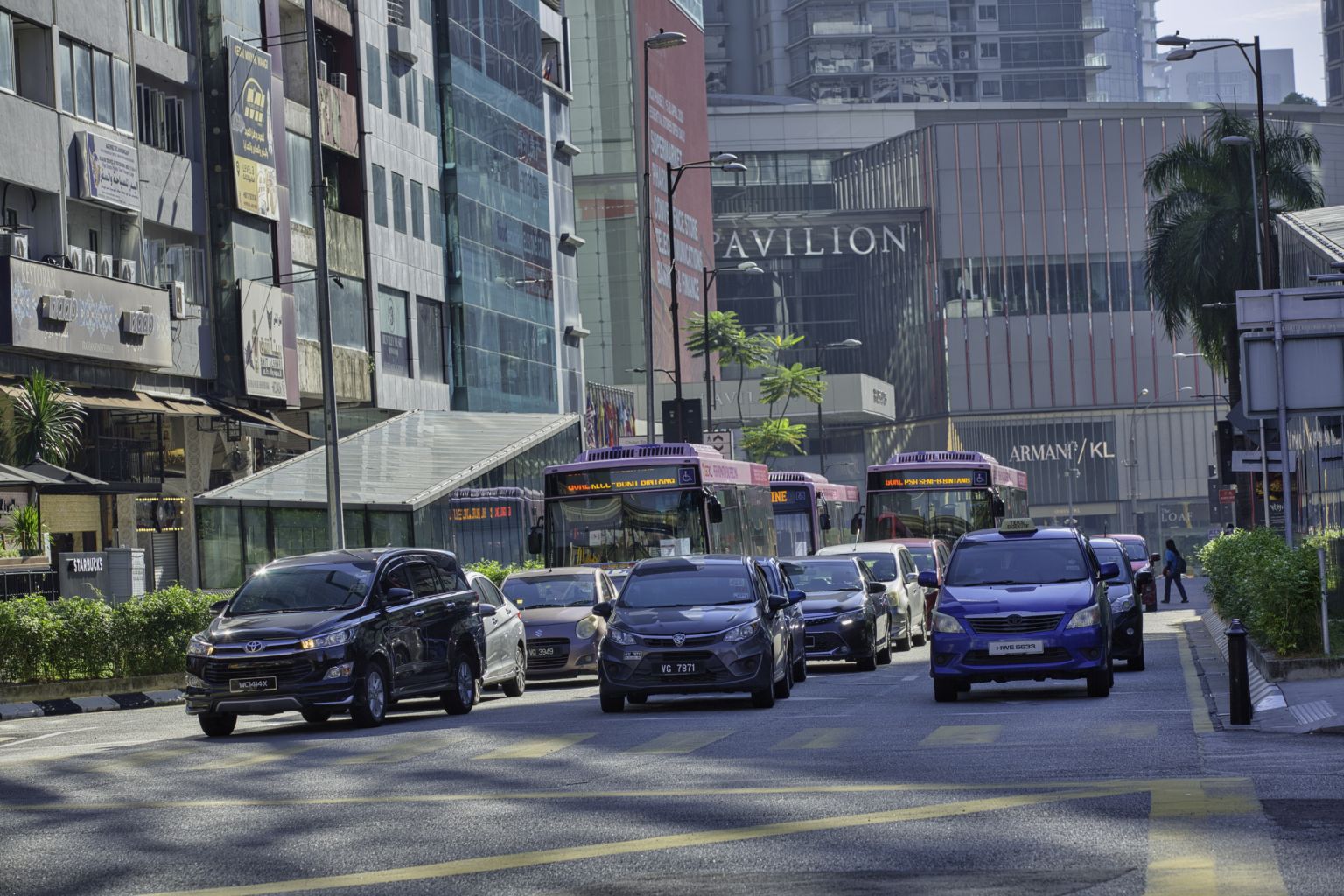Coronavirus: Malaysians cautiously step out amid eased controls
Sign up now: Get insights on the biggest stories in Malaysia

Heavy traffic filled thoroughfares into Kuala Lumpur.
PHOTO: EPA-EFE
KUALA LUMPUR - Some workers cautiously went back to their offices, joggers hit the streets and a few restaurants welcomed diners again as Malaysia began easing coronavirus controls on Monday (May 4) after nearly seven weeks, as the country tries to revive the flagging economy.
But the fear of contracting Covid-19 appeared to be keeping many Malaysians indoors, even though most businesses and malls which have been shuttered for 47 days under the movement control order (MCO) are now allowed to reopen, provided social distancing and contact tracing measures are adhered to.
Those who did venture out of their homes and used public transport had their temperatures taken and are reminded to comply with physical distancing, with red tape marking places where commuters are supposed to stand on platforms and inside trains.
"There were fewer commuters than what we expected," a spokesman for public transport service provider RapidKL told The Straits Times.
Traffic volume in the city was up 30 per cent on Monday compared with Sunday, said Kuala Lumpur traffic investigation and enforcement head Zulkefly Yahya.
All MCO roadblocks in the city have also been removed, he was quoted as saying by the Bernama news agency.
But despite what the government calls "conditional MCO", Malaysia's borders including the Johor land crossings from Singapore remain shut, except generally for returning citizens, permanent residents and expatriates.
Malaysia's airports only service limited domestic flights.
Schools remain shut, with large social gatherings and for mass worship still banned.
Though people are now allowed to dine at restaurants by following healthcare guidelines, many places have continued to stick to offering takeaways and accepting online orders only, including fast-food chain McDonald's.
Workers at three eateries in the suburb of Setiawangsa told ST that they will not be accepting diners for now.
"Our restaurant only serves takeaway food and does not provide in-store meal service... We do this to keep our customers and employees healthy," said a notice at the Al Bidayah Indian restaurant.
Nine of the 13 states in Malaysia have also rejected the federal call to reopen most businesses.
The country's richest state Selangor said it will not allow restaurants to offer dine-in services.
Sabah Chief Minister Shafie Apdal said the state would maintain the existing restrictions, originally meant to be in place until next Tuesday (May 12).
"Our decision to maintain the MCO is to check on the spread of the virus in the state and to protect the people," he said in a statement on Sunday.
Penang Chief Minister Chow Kon Yeow said the state will only fully reopen businesses on May 13.
Responding to the snub by these states, International Trade and Industry Minister Mohamed Azmin Ali, the most senior Cabinet minister after Prime Minister Muhyiddin Yassin, said on Monday that everyone should "remain united and strengthen our collaboration towards our economic sustainability, securing our livelihoods and the well-being of the people".
"Should the state governments refuse to cooperate in implementing Act 342 which has been gazetted into law enforceable throughout the country, the state governments may face the possibility of legal action from various parties, particularly the industry players," he said in a statement.
The widespread caution is perhaps justified. While Malaysia is showing signs of improvement, with 55 new cases recorded on Monday, the authorities have warned that it will not hesitate to impose lockdowns on areas if new clusters emerge.
For now, people like avid jogger Julie Goh, 50, are happy to take the opportunity to go for a run for the first time in over a month.
"I'm very grateful for being able to run after 47 days of zero physical activity outdoors," she said.


